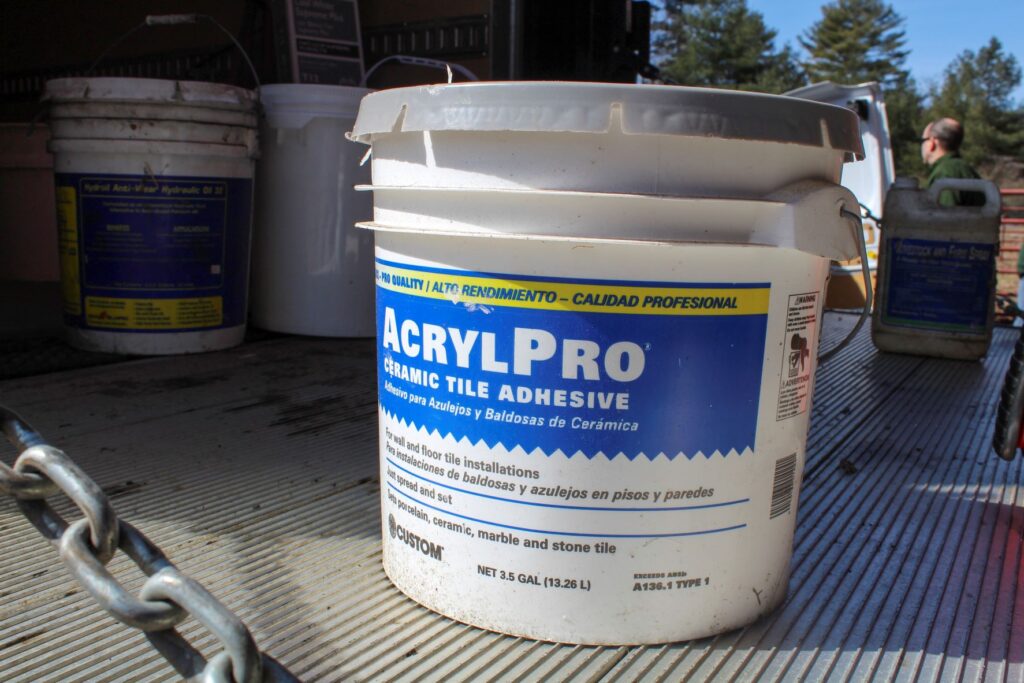In these trying times we need to stick together—but the same can’t always be said for the adhesive products we use. Glues, epoxies, and other adhesives have a limited shelf life and may need to be cleaned out to make room for new, better-working products. But not all of them can easily go in the trash, especially due to their chemical nature and how that interacts with things like trash compactors. Learn how to identify these hazardous household products and your options when it comes to disposing of adhesives in the trash or a collection center.
Handling and Storing Glues and Other Adhesives
Adhesives run a gambit of types, dangers, and best practices. Before use, it’s important to read the warning labels of the adhesives you’re going to use, as they can provide vital information. While something like an arts and crafts glue stick is benign, many stronger adhesives—such as epoxies or rubber cement—contain Volatile Organic Compounds or VOCs. These compounds (which can also be found in things like driveway sealants) require special handling and storage, like needing to be used and stored in well-ventilated areas and away from sources of sparks or fire.
Disposing of Adhesives at Home
While your first option when looking at disposal should be reading the label and following the manufacturer’s instructions, there are a few rules of thumb you can use:
- Non-Toxic Glues: Basic arts and crafts glue sticks and other non-toxic glues can be left out or poured onto waste paper to dry out completely before being disposed of in the trash.
- Solvent-Based Glues: These are heavy-duty adhesives including epoxies, cement, and instant glues. Due to the VOCs they contain, they generally should not be dried out or thrown in the trash.
- Sealants: Sealants—especially ones that contain Polycyclic Aromatic Hydrocarbons (PAHs), such as driveway sealants—also can’t be thrown away in the trash.
Additional Adhesive Disposal Options & Exceptions
For products that you can’t either give away or use up yourself and can’t be thrown away in the trash, you’ll need to look at alternate disposal options. Check with your county to see if any programs exist, but it might be time to use an easier service that’s around when you need it. Our NEDT Household Hazardous Products Collection Centers are here to provide that service, with convenient locations and times to get hazardous waste out of your home. We even do pick-up!
Find the closest NEDT Collection Center to you and contact us to ask any questions or arrange a pick-up. You can also bring in other household hazardous waste to us, including paint, e-Waste, and more! Our blog and fact sheets can also provide you with more information on the handling, storage, and disposal options of other common household products.



Leave a Reply